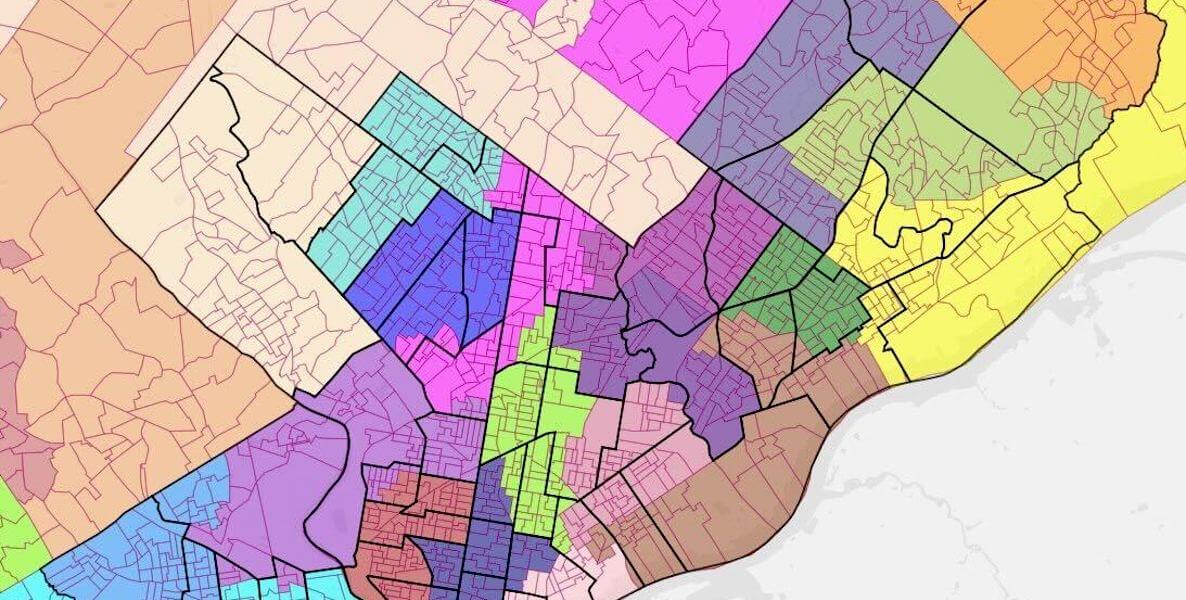The Pennsylvania Legislative Reapportionment Commission that’s charged with redrawing the Commonwealth’s state legislative districts voted in favor of two preliminary maps on Thursday, which were presented for public view the same day.
Review the maps on Dave’s Redistricting App (House, Senate) and submit a comment before Janaury 18 with your feedback. You can also use this tool to compare the current maps and the preliminary new ones to see what’s changed.
Legislative boundaries are redrawn once a decade after the Census population data are released, and in Pennsylvania the process is substantially driven by elected officials and not an independent commission.
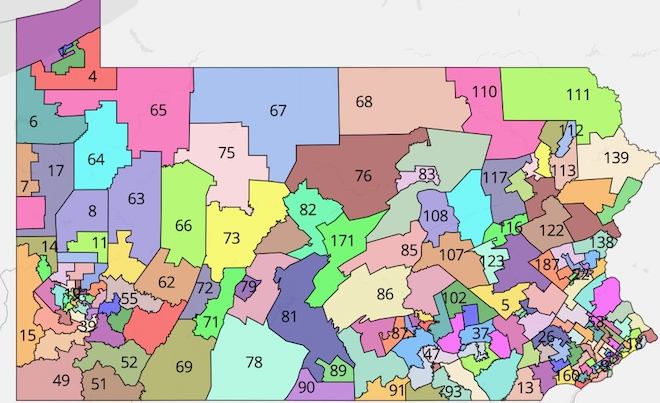
Last time around, in 2010, Pennsylvania Republicans had a much firmer grip on political power in the state, and were able to run the table on the process, producing one of the most egregious gerrymanders in the country. But a decade later, with Democrats holding the Governor’s office and a lopsided majority on the state Supreme Court, the Dems are much better-positioned to win more favorable maps for the 2022 elections.
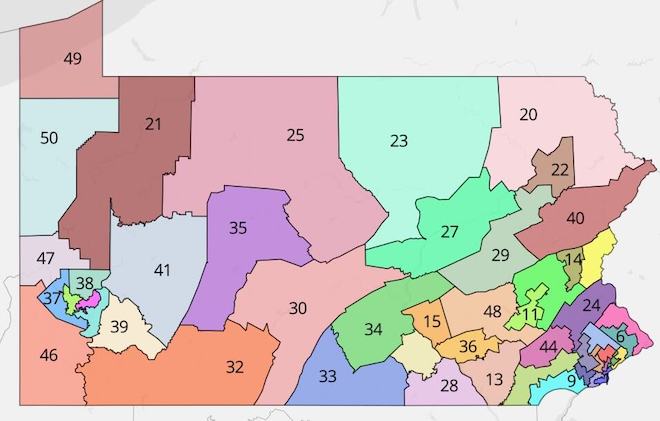
Based on an analysis from the Princeton Gerrymandering Project for the Inquirer using past election results to simulate the partisan lean of different districts, the preliminary House map gives Democrats a real opportunity to flip the chamber, while the Senate map becomes somewhat more Republican-leaning than the current one:
While there are currently 118 Republican and 85 Democratic districts in the base partisanship of the current House map, that would shift to 104 Republican and 99 Democratic districts under the new map.
House Republicans said the new map would draw 12 GOP incumbents into districts where they would have to face fellow lawmakers in primaries. It would only pit two Democrats against each other. Four Democratic incumbents could face four Republican incumbents in combined districts.
The two Democrats who would have to face each other in a primary are Northwest Philly representatives Chris Rabb and Pam DeLissio. This also scrambles the primary campaign dynamics there, with DeLissio challenger Tarik Khan suddenly finding himself lower in the pecking order against a more senior progressive Rep. Rabb who remains in good standing with progressive activists.
The preliminary maps, if passed in the same form, would also scramble some other House primary challengers’ plans. Bernard Williams, who planned to challenge Rep. Darisha Parker in the 198th district, was drawn out of that district, and Reclaim-affiliated candidate Aileen Callaghan, who was planning to challenge Rep. Joe Hohenstein in the 177th District, was also drawn out-of-bounds there into Rep. Angel Cruz’s new district.
Two Reclaim-affiliated candidates—Samantha Pfeiffer, and Ty Brown—are now packed into the 175th District represented by Mary Isaacson. Brown originally had planned to run in the 182nd District to replace Brian Sims. In that district, all the rest of the known primary candidates—Deja Alvarez, Jonathan Lovitz, Will Gross, and Ben Waxman—would remain in the same district.
On the Senate side, the preliminary map would favor Republicans 27-23, up from the 24-23 lean of the current map. Senate Democrats would end up with fewer competitive swing seats to work with to try and cobble together a majority, but the map would strengthen incumbent Democrats’ hold on their seats.
The difference between the approaches of PA House Dems and PA Senate Dems on full display today. Who needs a majority when we have the 21 best incumbents in the world?
— DBK (@dakaner) December 16, 2021
It’s an important reminder not to assume that the party negotiators will necessarily put their party’s electoral fortunes above the reelection concerns of specific members. Democratic voters learned that lesson well in 2010 when Democratic representatives in Philadelphia and Pittsburgh cut side deals with Republicans for safer seats for specific members and supported the Republican maps, resulting in the horrific gerrymanders of that year that locked Democrats out of power for most of a decade.
A similar effort is afoot this year with the Congressional maps, where Senator Sharif Street last week unveiled a map he secretly negotiated with Republican Senator Dave Argall that would mean a net loss for Democrats’ Congressional prospects, but create an opportunity for Senator Street to challenge sitting Congressman Brendan Boyle in a primary. Boyle, along with other members and party actors roundly slammed the Street/Argall map in the press, but it isn’t necessarily dead yet.
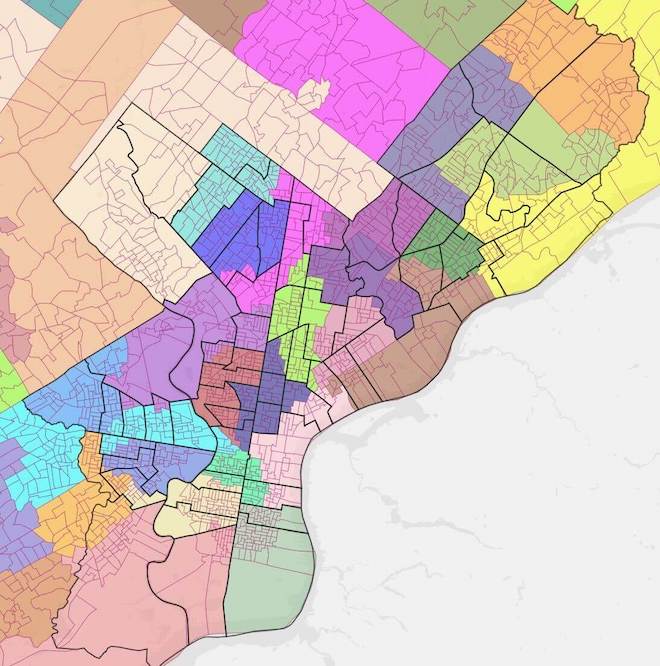
Due to the Democratic-controlled Supreme Court being the ultimate backstop at the end of the process—remember in 2018 when they appointed a Special Master to draw new Congressional Districts after the legislature and Governor deadlocked?—Republicans in the legislature are much more hemmed into drawing maps that could pass muster with the Court for both Congress and the state legislature.
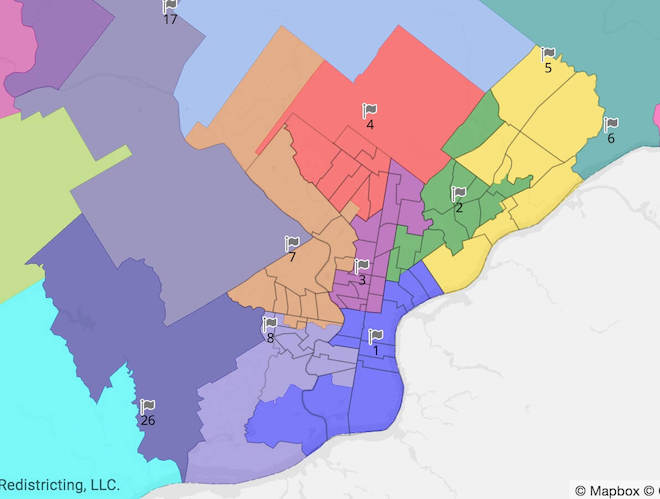
Now that the Legislative Reapportionment Commission has approved both preliminary state legislative maps (unanimously for the Senate, and 3-2 for the House with the two Republican members opposing) they’ll be filed with the office of the Secretary of the Commonwealth, and there will be a 30-day period where people can file exceptions that the Commission will consider. The Commission will also hold public hearings to receive input on the maps.
After that 30-day period ends, the Commission will then meet to consider changes before filing a final map with the Secretary of the Commonwealth. And after that, parties can and almost certainly will appeal the maps to the PA Supreme Court, where Democrats have a 5-2 majority.
It’s worth emphasizing again that these are preliminary maps and they could change based on feedback submitted in the next 30 days, or the inevitable litigation that will follow. Submit your comments or alternative maps before the deadline on January 18.

Jon Geeting is the director of engagement at Philadelphia 3.0, a political action committee that supports efforts to reform and modernize City Hall. This is part of a series of articles running on both The Citizen and 3.0’s blog.
![]()
MORE ON REDISTRICTING FROM THE CITIZEN



